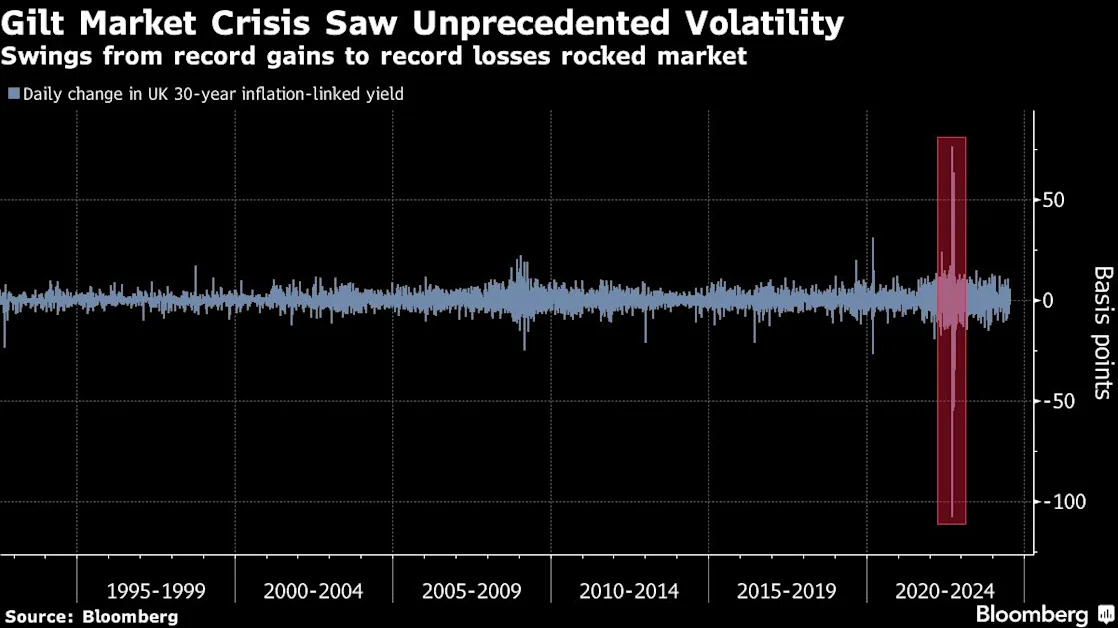
UK Pension Reforms to Protect Gilt Market, Insight Boss Says
(Bloomberg) -- The UK’s planned pension reforms are likely to shield the gilt market from an expected rise in government bond issuance, according to Abdallah Nauphal, chief executive officer of Insight Investment.
Most Read from Bloomberg
Chancellor of the Exchequer Rachel Reeves is proposing to allow defined-benefit programs of companies to access their surpluses and plow them back into their core businesses as part of plans to revive economic growth. That could slow a trend of insurers taking over pension plans, tempering a potential bond selloff that might otherwise reach about £500 billion ($645 billion) over the next decade, Nauphal said in an interview.
With an uptick in debt supply combined with quantitative tightening by the Bank of England, “what you don’t want is that £500 billion gilt holders become sellers,” because insurers traditionally opt for more profitable investments in order to better manage those pensions, Nauphal said.
Insurers hold approximately 60% fewer gilts than such pension programs for similar liabilities, according to an estimate from researchers at Schroders Plc. That means when a pension fund’s obligations are transferred, gilts may be sold in favor of other assets including corporate debt and private assets. The government plans to sell £299.2 billion of bonds in the fiscal year starting April, £2 billion more than what’s planned for the current fiscal year and the most since the pandemic-era borrowing push.
Battling to jumpstart a weak economy, officials have been piling pressure on the wider pensions industry to commit more to domestic investments. Through reforms and voluntary deals, Reeves is hoping to release more private capital to “productive assets” in the UK.
Insight, which typically manages assets for pensions that haven’t been bought out by an insurer, estimates that about half of the industry’s surplus of £160 billion could be freed up within the next two years and used by companies to improve members’ benefits, invest in strategic projects or higher-yielding assets.
Nauphal, who made his name creating complex investing strategies to help UK pensions manage interest-rate and inflation risks, said the government will need to define further what exactly those assets could be as it considers creating tax incentives around it. The Treasury is expected to publish details of the policy changes in the spring.